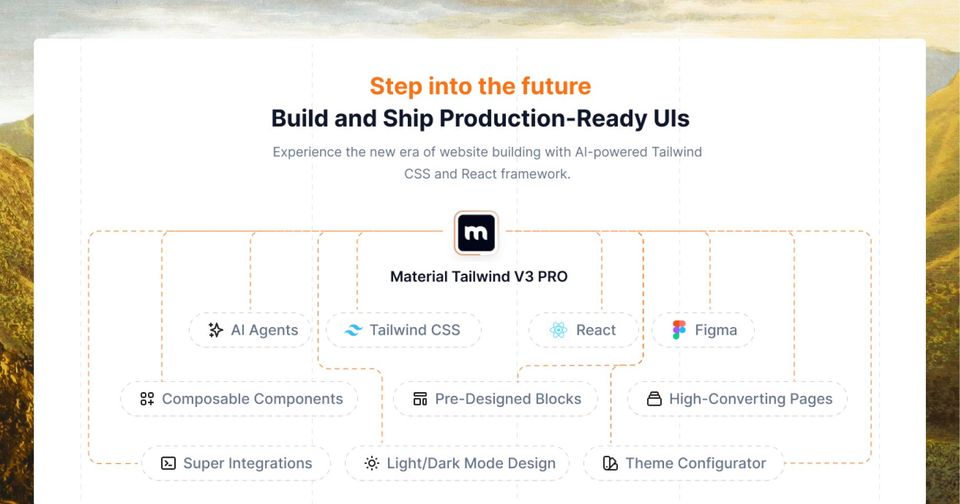An essential stage in the realm of programming is code optimization. Making code execute more quickly and with less usage of resources, like time or memory, is what we mean when we talk about optimizing code.
A computer program can run more quickly and smoothly with well-optimized code, much as a well-organized space can make it easier to find items. But everything has its proper time and place. Making code "perfect" too soon can occasionally lead to more issues than it resolves. Given that errors can result in more serious problems in the future, developers must be aware of when and how to optimize their code successfully.
However, this post will examine five important mistakes developers frequently make during this process and provide our community of web designers, developers, and tech enthusiasts with insights.
1. Prioritizing Premature Optimization
Definition
Premature optimization is when a developer tries to make a part of their code faster or more efficient before it's really necessary. A famous expert named Donald Knuth once said, "Premature optimization is the root of all evil." This means that doing optimization too soon can cause more problems than it solves.
Mistakes & Consequences
There are several issues that can arise from premature optimization:
-
Wasted Time
Developers might spend a lot of their valuable time focusing on tiny details of the code that don't really affect how well the program runs. It's like spending hours polishing a small corner of a car but ignoring the engine. -
Complexity
Trying to make code "perfect" can make it harder to understand. When code becomes too complex, other developers might find it challenging to work on or make changes to it in the future. -
Potential Errors
When optimizing without the right tools, called profiling, developers can accidentally introduce new mistakes or bugs into the code. These bugs can be hard to spot and might cause bigger problems later on.
2. Not Profiling Before Optimization
Profiling is a technique where developers use special tools to gather data about how a program runs. This data helps them identify which parts of their code might be slowing things down or causing problems. It's like a doctor using a thermometer to find out if a patient has a fever.
Mistakes & Consequences
- Jumping to Conclusions
Without profiling, developers might guess or assume where the problems in the code lie. It's like trying to fix a leaky roof without first finding where the water is coming from. They could end up fixing parts of the code that aren't causing any issues. - Misused Resources
When developers don't use profiling, they can spend hours or even days working on the wrong sections of the code. This means valuable time and energy get wasted on things that don't improve the program. - Overlooking Real Problems
By not identifying the actual issues, some parts of the code that need attention might get ignored. As a result, the program might still run slowly or have other problems, even after optimization.

3. Neglecting Readability for the Sake of Speed
Code readability refers to how easy it is for someone to understand a piece of code just by looking at it. When developers focus only on making code run quickly and don't pay attention to how it's written, they can end up with code that's hard to read and work with. It's like writing a story in a hurry without worrying about grammar or clarity. You can invest in training video production to train your staff on the subject, ensuring that everyone understands how to write code that's not only efficient but also easy to maintain and collaborate on.
Mistakes & Consequences
- Confusing Code
If code is written without clarity in mind, other developers might struggle to understand it. This can be a problem when someone else has to update or fix the code later. It's like trying to read a book written in a language you don't understand. - Technical Debt
When code isn't clear, it can lead to something called "technical debt." This means that over time, more and more effort is needed to maintain and update the program. Imagine having to pay back a loan with very high interest; it keeps growing bigger and harder to manage. - Hidden Bugs
Hard-to-read code can also hide mistakes or bugs. These hidden issues might cause the program to behave unexpectedly or even crash. It's similar to a puzzle with missing pieces; you can't see the whole picture.
4. Ignoring Scalability
Scalability is a program's ability to handle more tasks or users as it grows. Imagine a road: at first, it might be okay with just a few cars, but as more people use it, the road needs to be wider to avoid traffic jams.
Mistakes & Consequences
- Unprepared for Growth
Developers who don't think about scalability may find themselves in a tough spot when their program gets popular or has more data to handle. It might not be ready to manage this increased demand. It's like a small restaurant suddenly getting hundreds of customers—they might not have enough seats or staff! - Short-term Solutions
Sometimes, in a rush to fix problems, developers might choose solutions that work for now but aren't good for the long term. It's similar to using a small band-aid on a large wound; it might cover the issue briefly but won't heal it. - Increased Complexity
When a system isn't built with scalability in mind, it can become hard to manage as it grows. It's like adding more and more rooms to a house without a proper plan. Over time, the house can become a confusing maze.
5. Over-reliance on Third-party Tools and Libraries
Third-party tools and libraries are like pre-made building blocks that developers use to create software. While they can be helpful, using them without careful consideration can lead to problems.
Mistakes & Consequences
-
Unnecessary Bulk
Sometimes, these libraries come with many features, and developers might only need a few. Using such libraries can make a program larger and slower, like carrying a big backpack when you only need a small book from it. -
Safety Concerns
Not all third-party tools are safe. Some might have weaknesses that bad actors can exploit, putting your program and its users at risk. It's similar to leaving a door unlocked; unwanted guests might enter. -
Dependency Issues
Relying heavily on external tools can be problematic, especially if those tools are no longer updated or supported in the future. It's like depending on a machine that no one knows how to fix if it breaks.
The Value of Expert Guidance in Code Optimization
While understanding common mistakes in code optimization is crucial, knowing how to correct and avoid these pitfalls requires expert knowledge and insight.
According to UppercutSEO, experts can save your valuable time through their code optimization experience and propel you several years ahead.
Developers, web designers, and tech enthusiasts alike can benefit from their comprehensive guides, ensuring that their projects are both technically sound and SEO-friendly.

FAQs
What is premature optimization?
Premature optimization refers to spending time refining parts of the code that don't significantly impact performance, often before determining if such refinements are necessary.
Why is profiling essential before optimizing code?
Profiling helps identify the actual bottlenecks in the code, ensuring developers focus on optimizing the areas that will yield the most significant performance gains.
How does code readability affect maintainability?
Clear and readable code allows future developers to understand, modify, and debug it more easily, reducing the chances of introducing new errors.
What is meant by scalability in coding?
Scalability means designing code to handle growth, whether that's more users, more data, or added functionalities, without significant rewrites or performance drops.
Are third-party libraries bad for optimization?
Not necessarily. However, it's crucial to choose libraries that fit the project's needs without adding unnecessary bulk or potential security vulnerabilities.
Conclusion
For websites to be effective and powerful, common code errors must be avoided. Developers may improve their code and create speedier websites that both consumers and search engines will like by putting a strong emphasis on data-driven decisions. While speed is important, it's as important to make the code simple to read and manage.
Keep in mind that the finest code is organized so that subsequent developers may work with it quickly and enhance it in addition to performing properly.
If you are interested in an AI-based solution for code optimization, AI Code Mentor can help developers optimize their code, resulting in simpler, cleaner code that is easier to read and understand.
About the Author
Tom manages UppercutSEO.Com which is a leading digital Marketing agency. With a passion for optimizing digital landscapes, Tom’s expertise drives websites to new heights in search engine rankings, delivering powerful results in the world of SEO.




